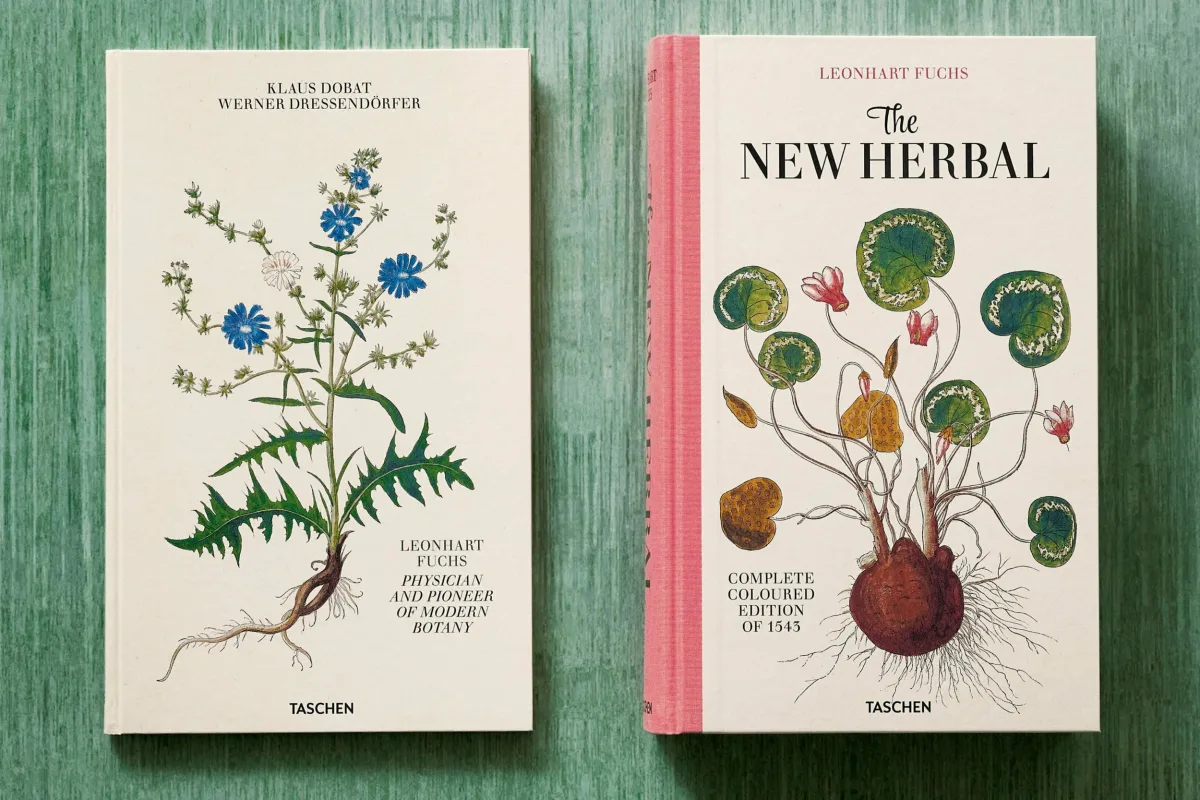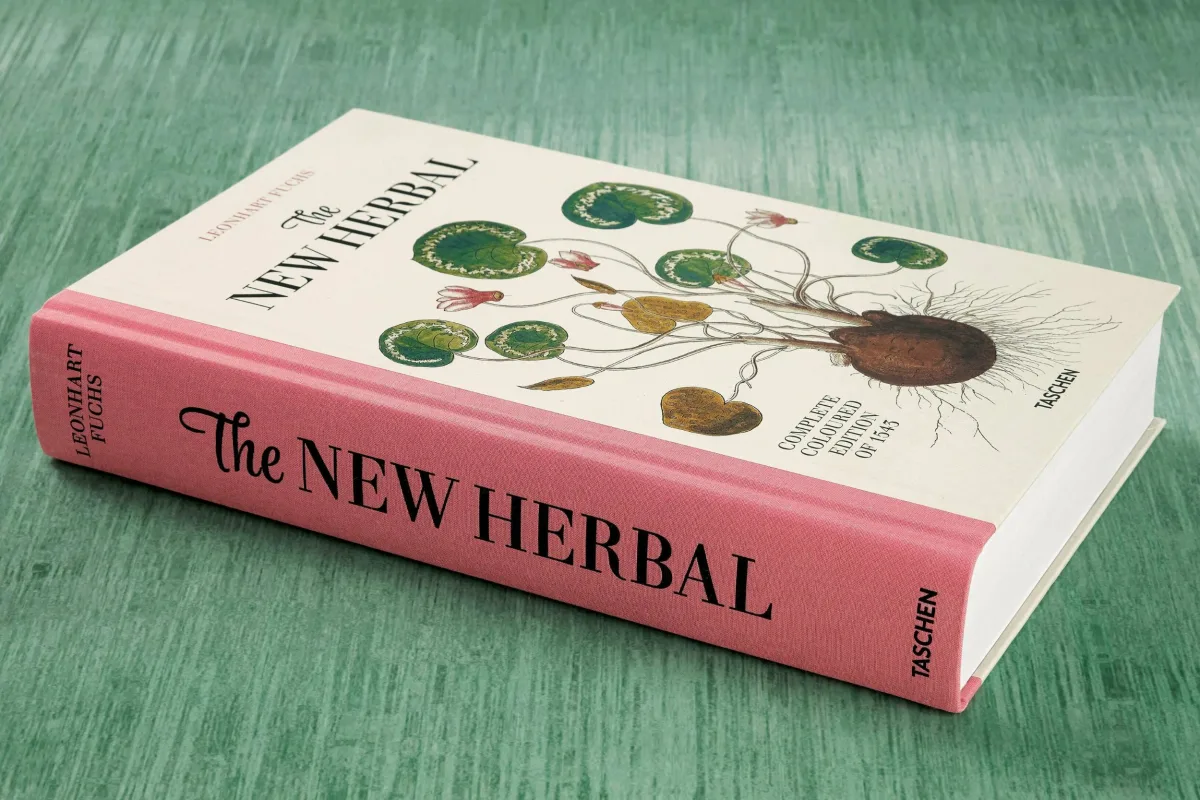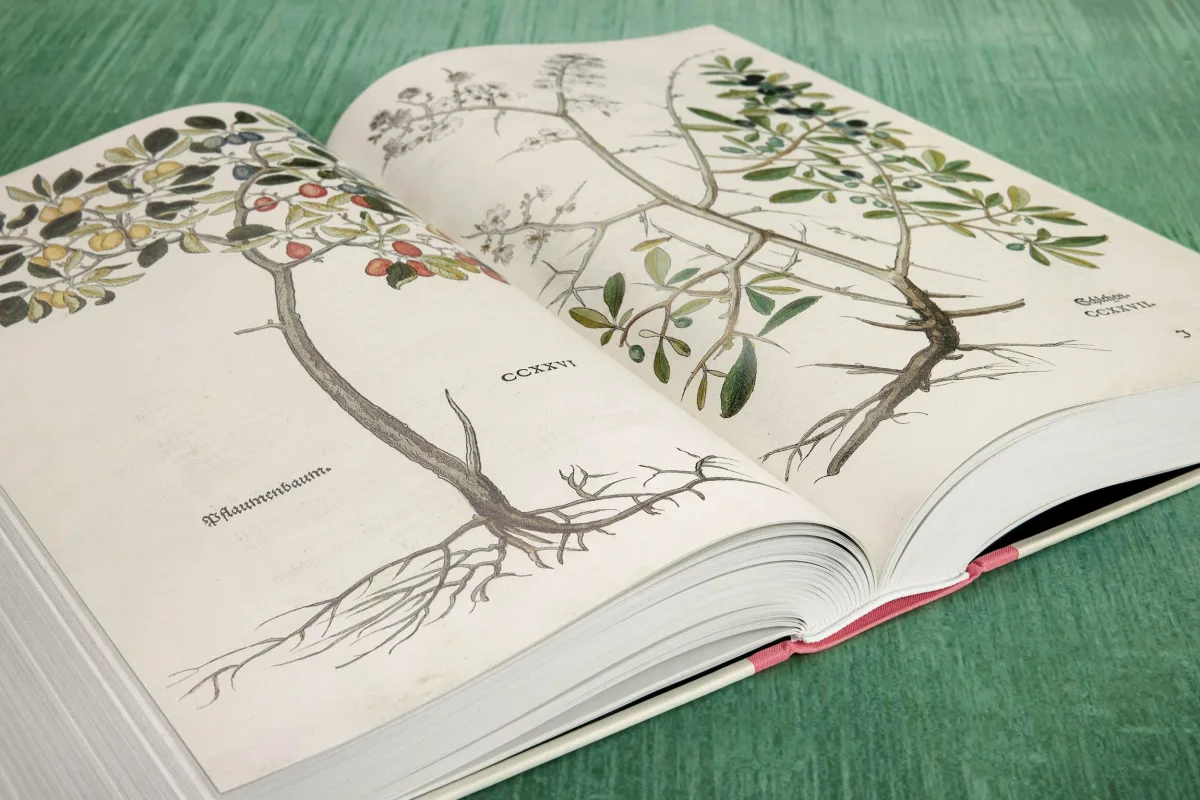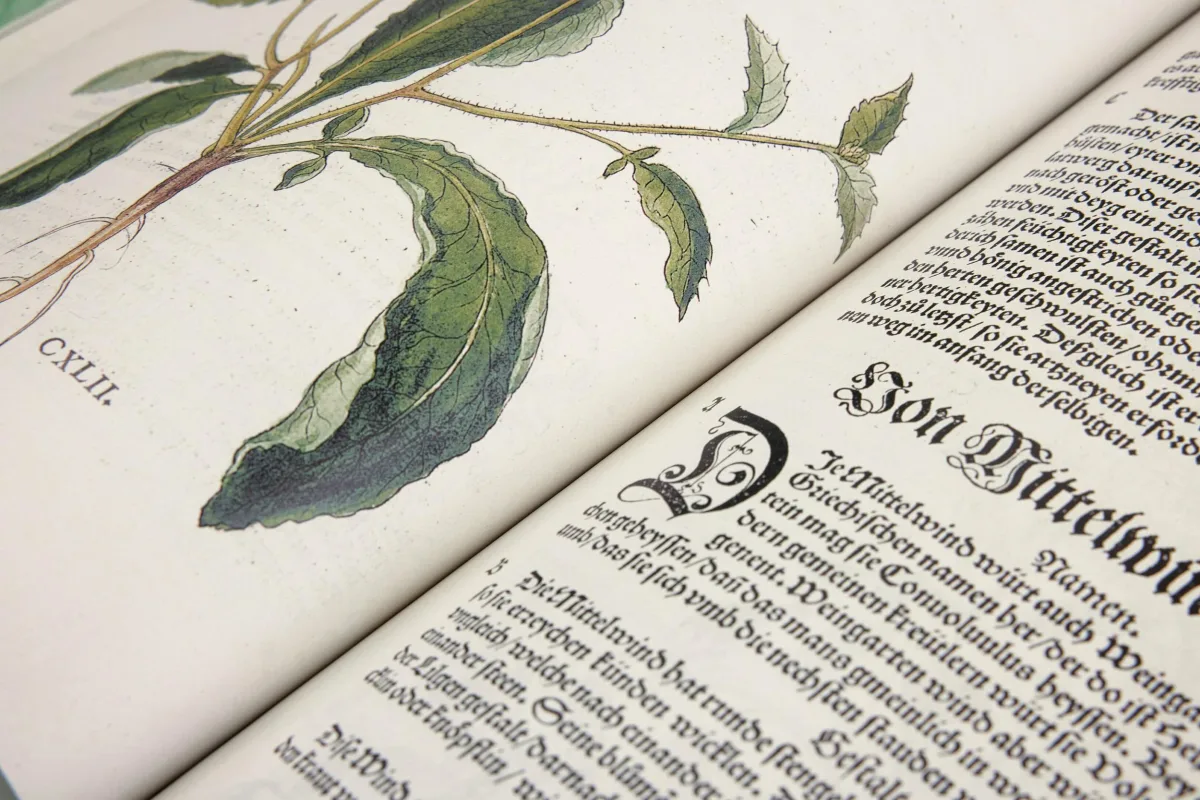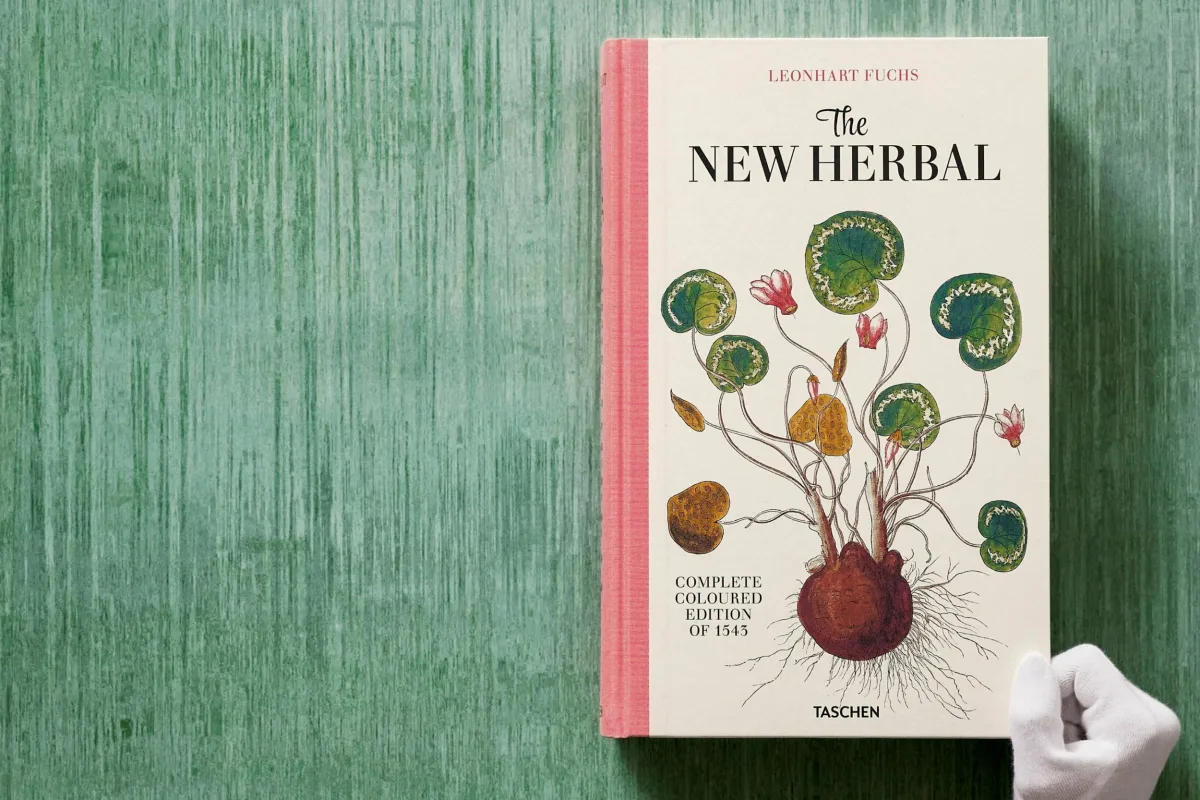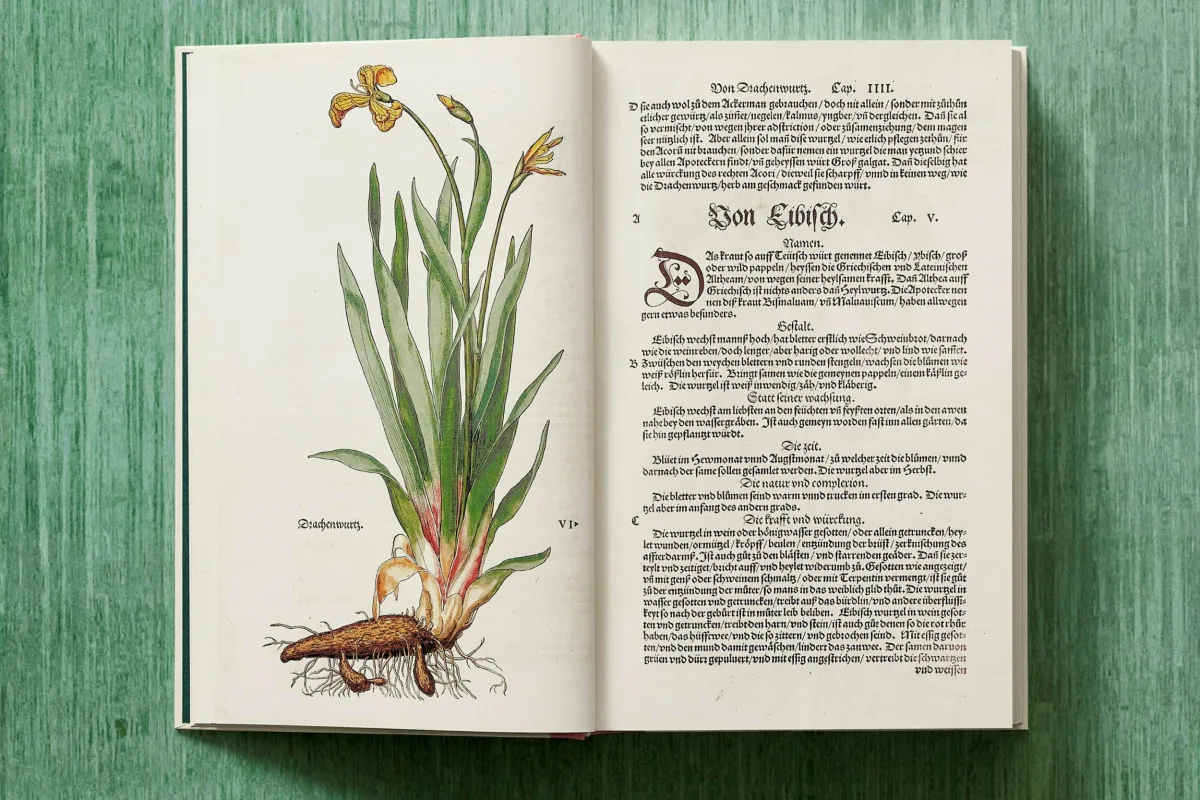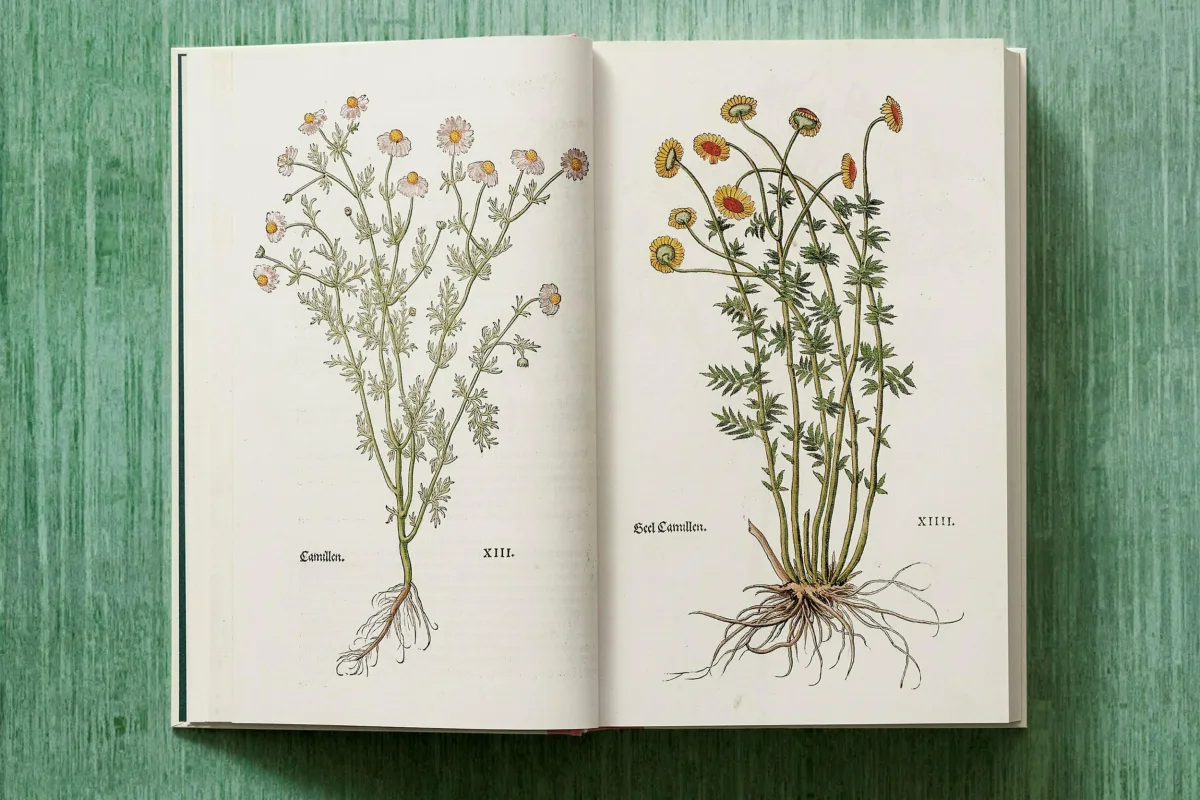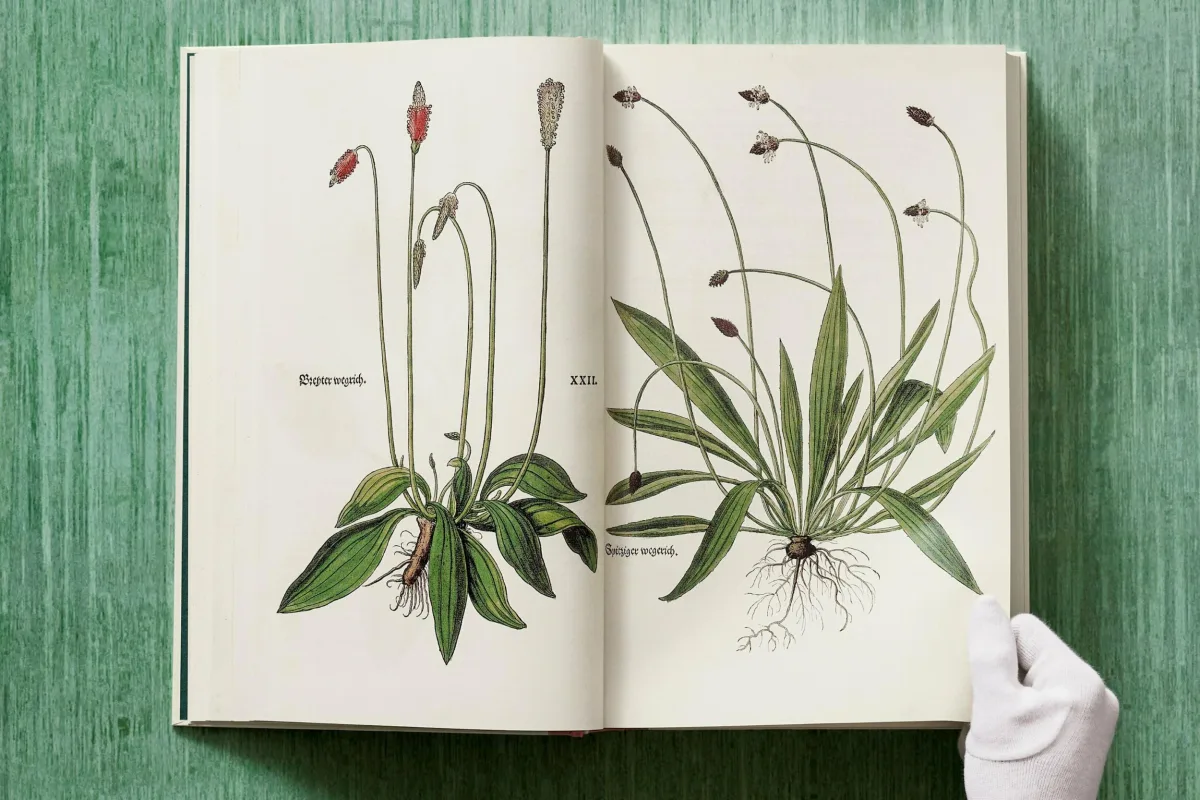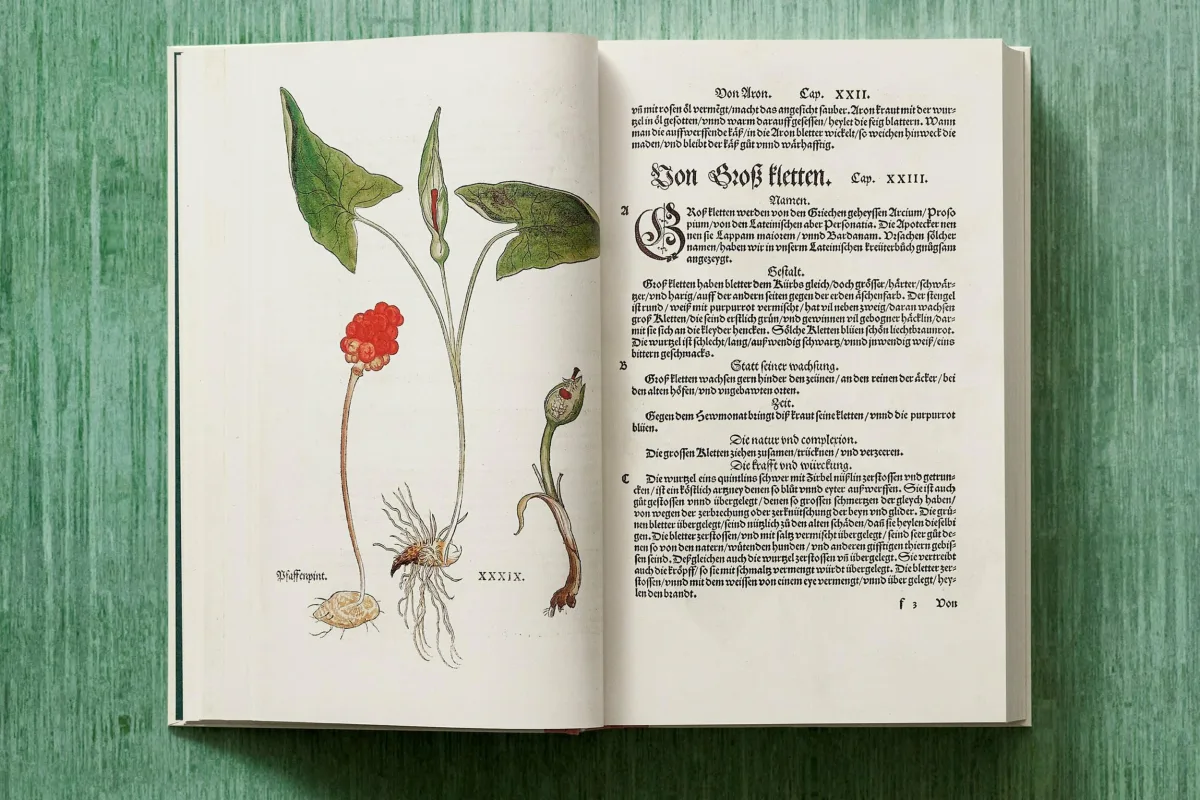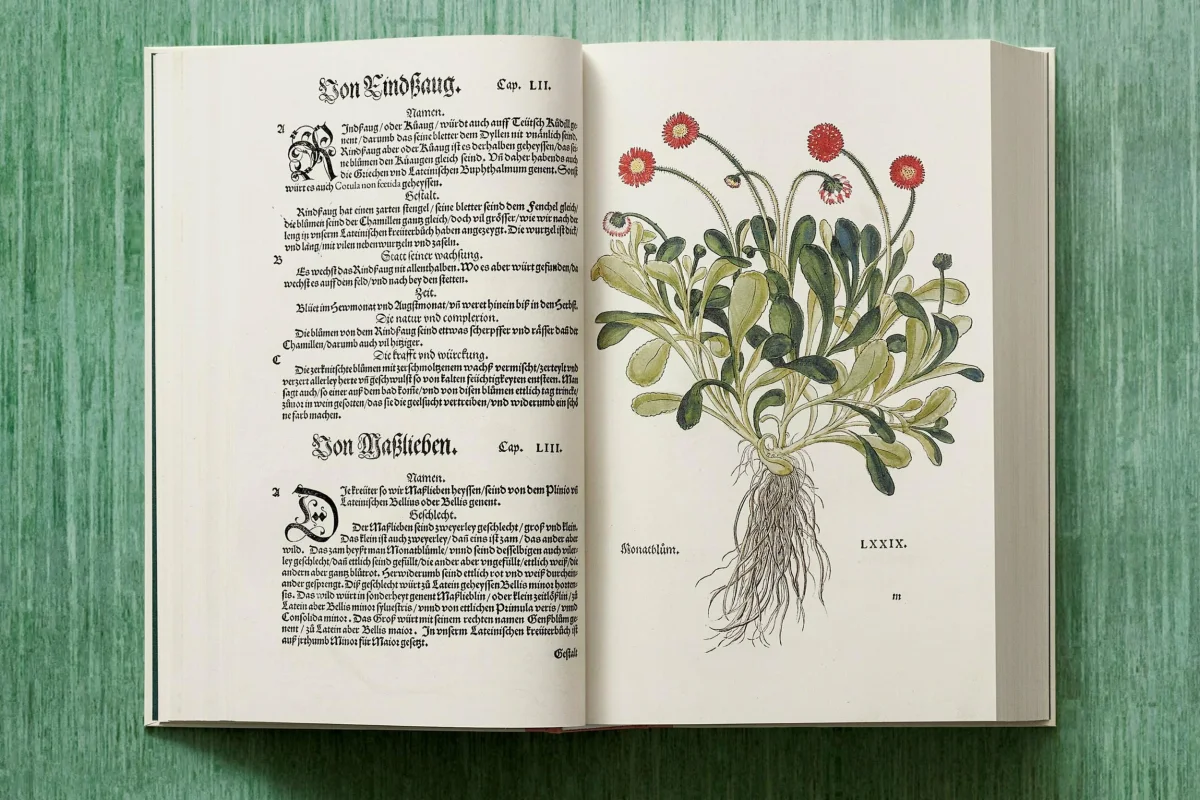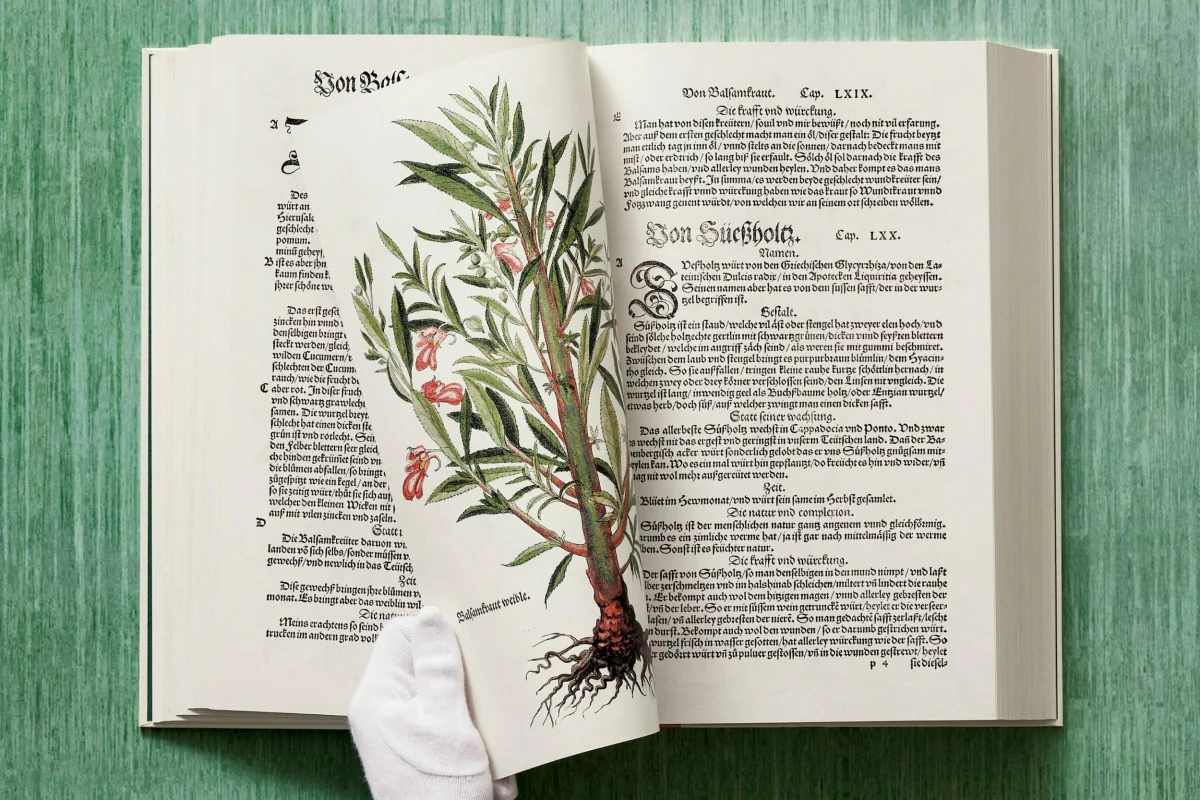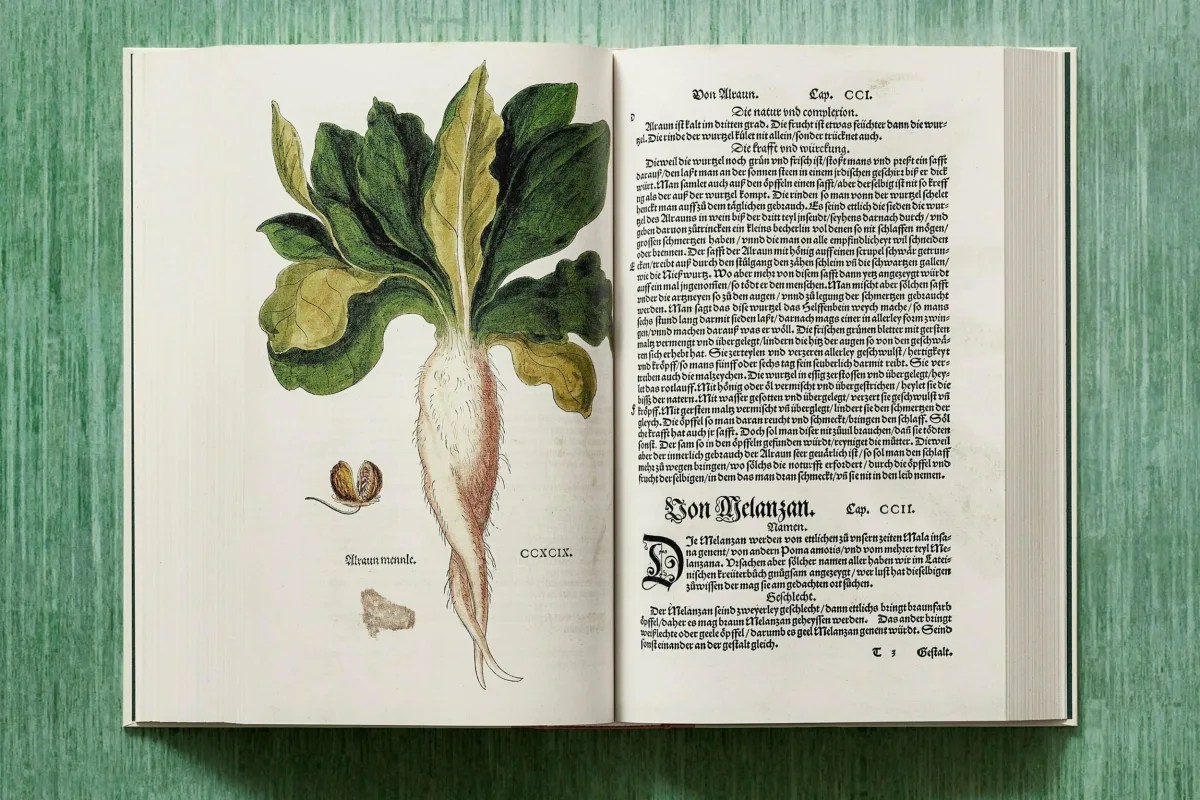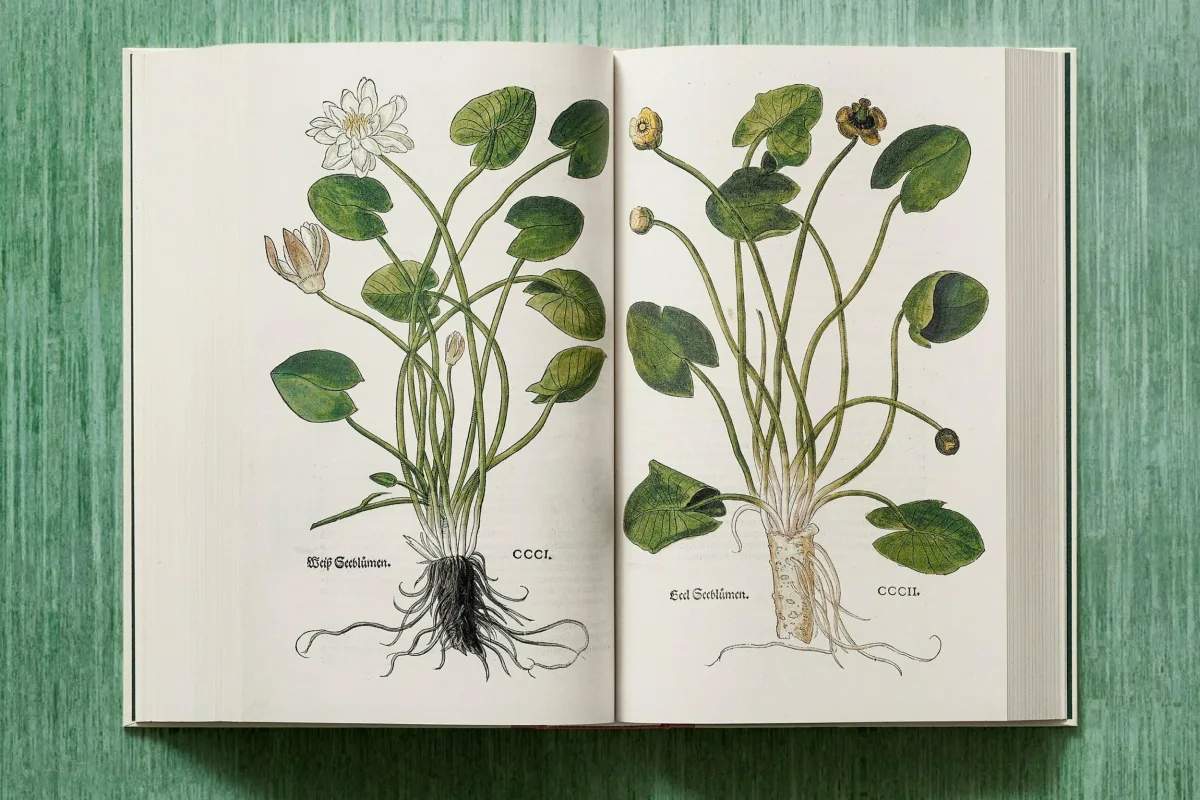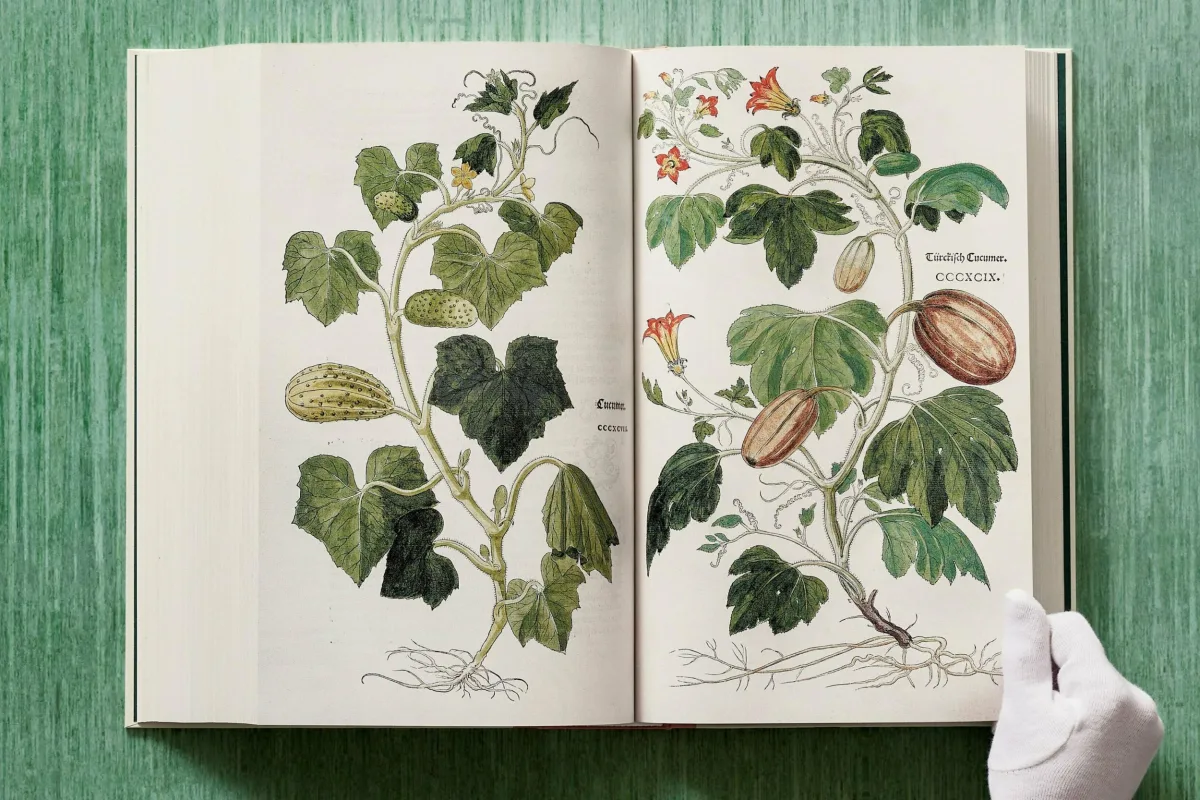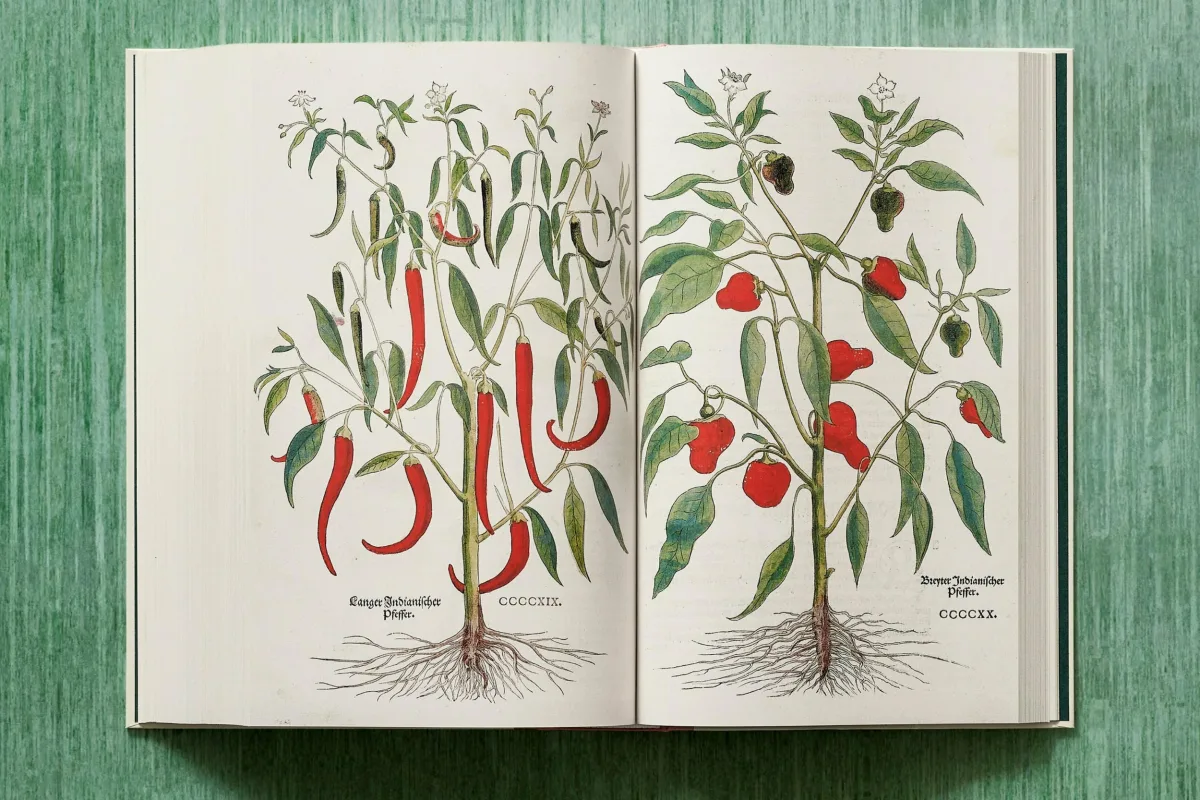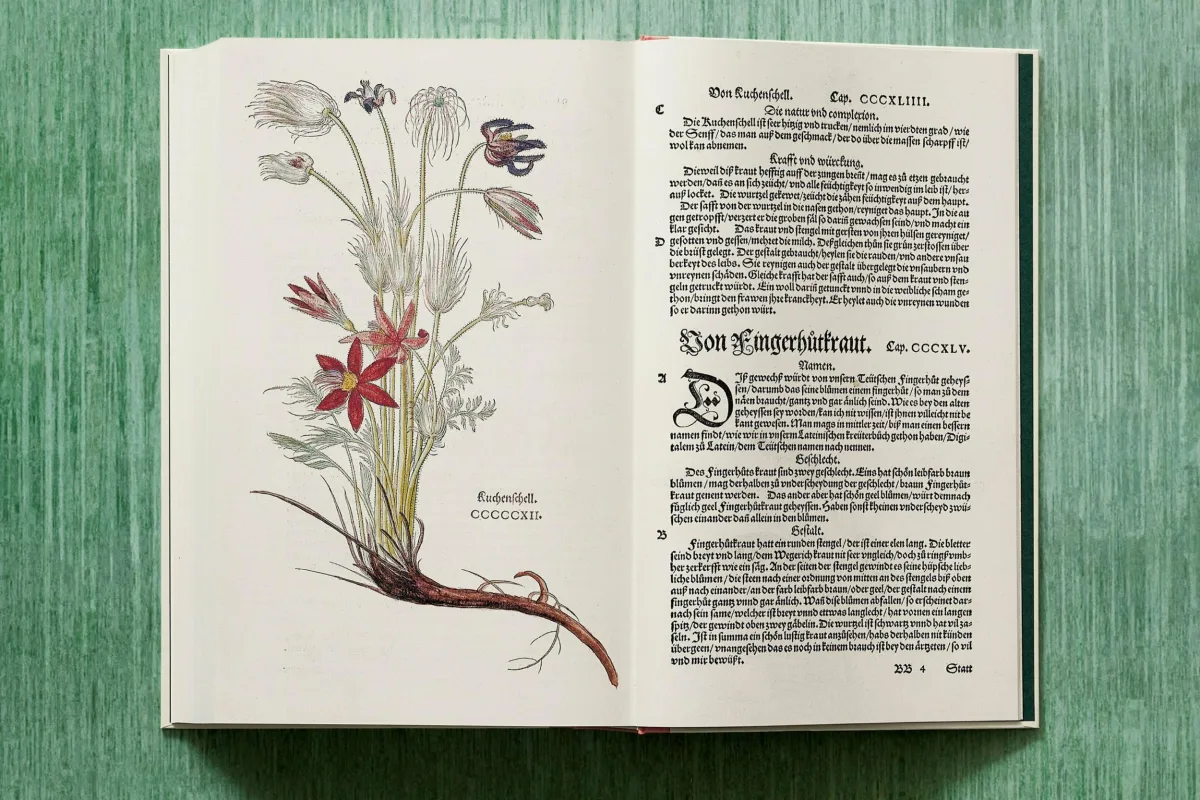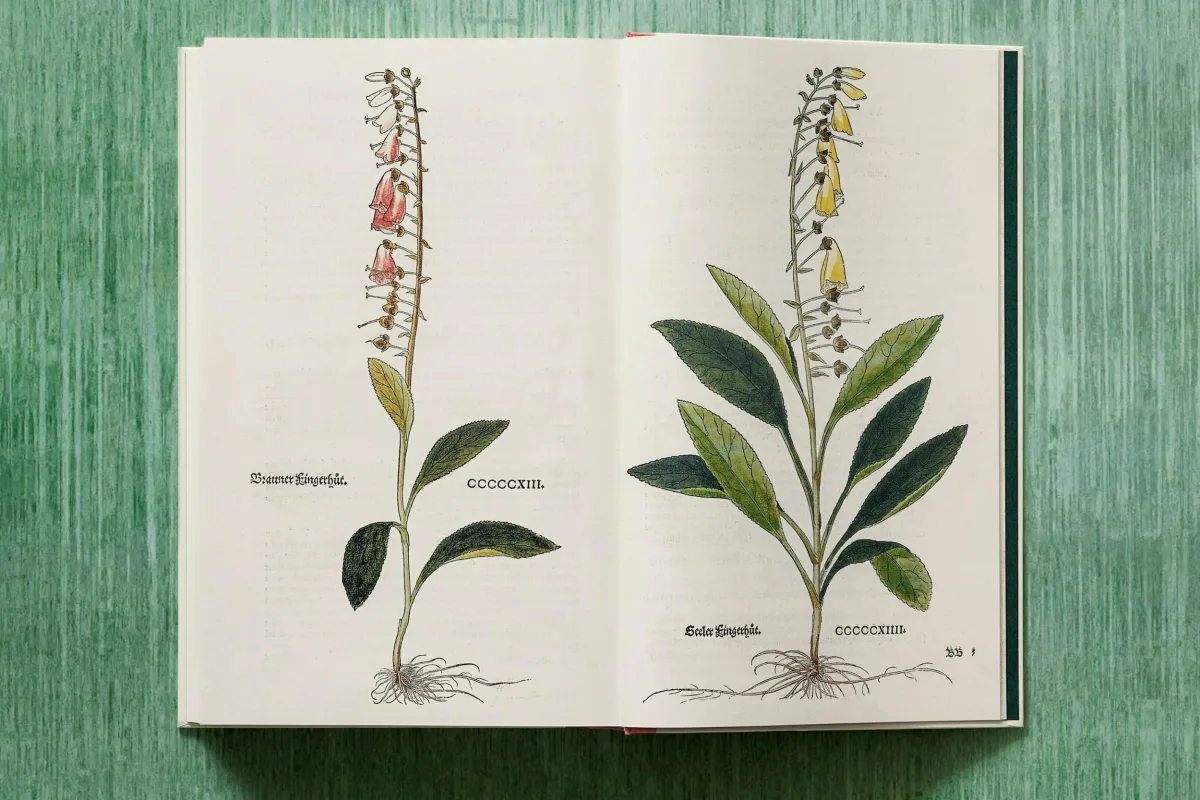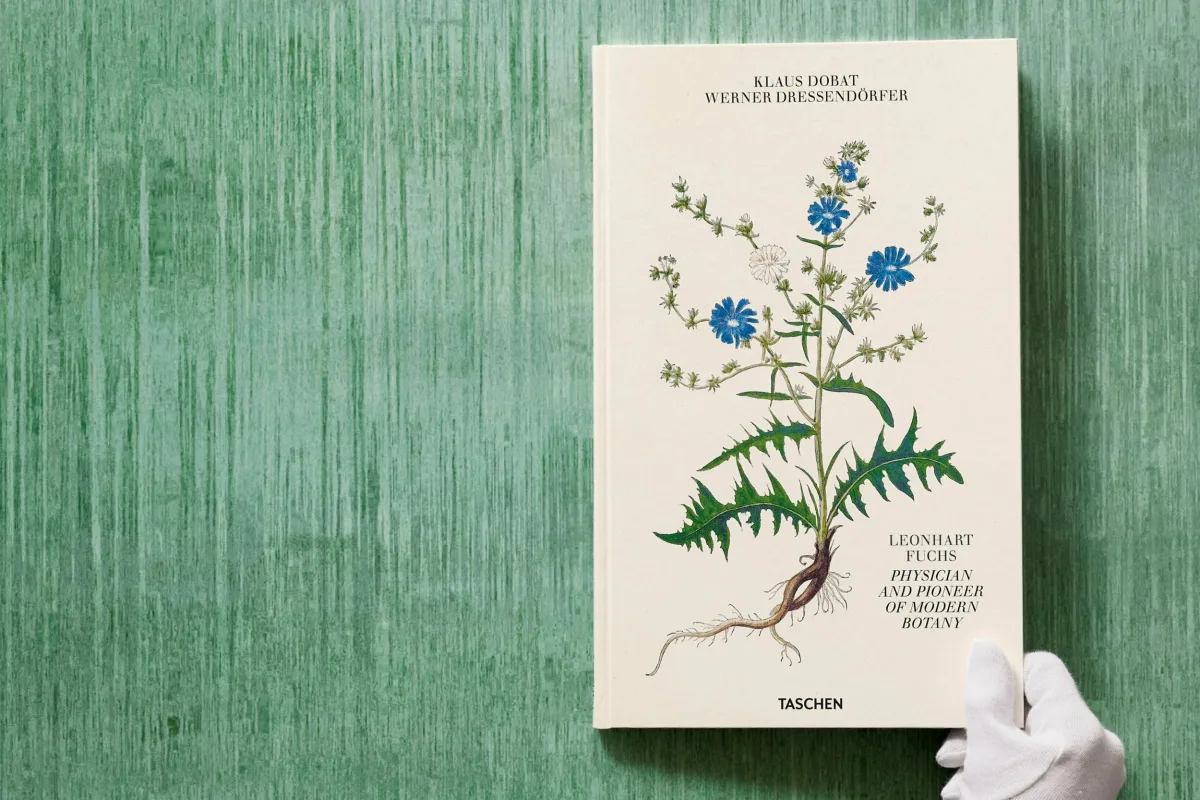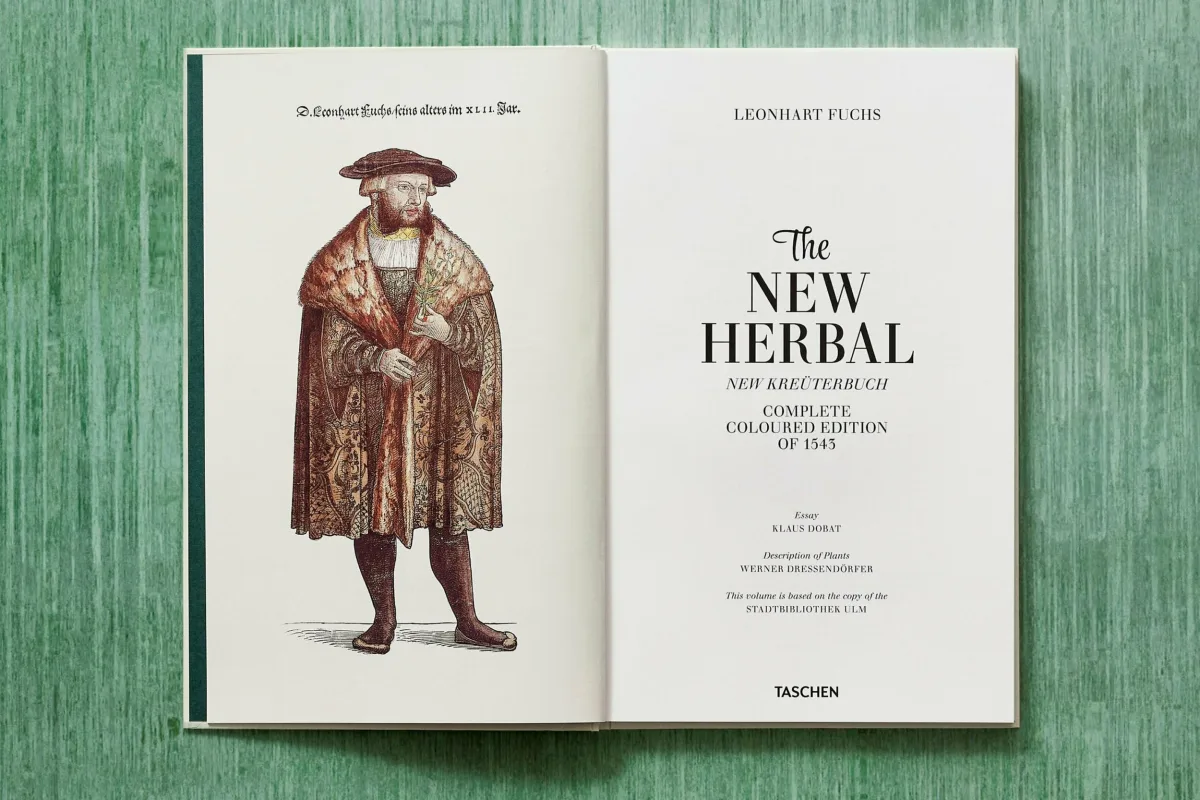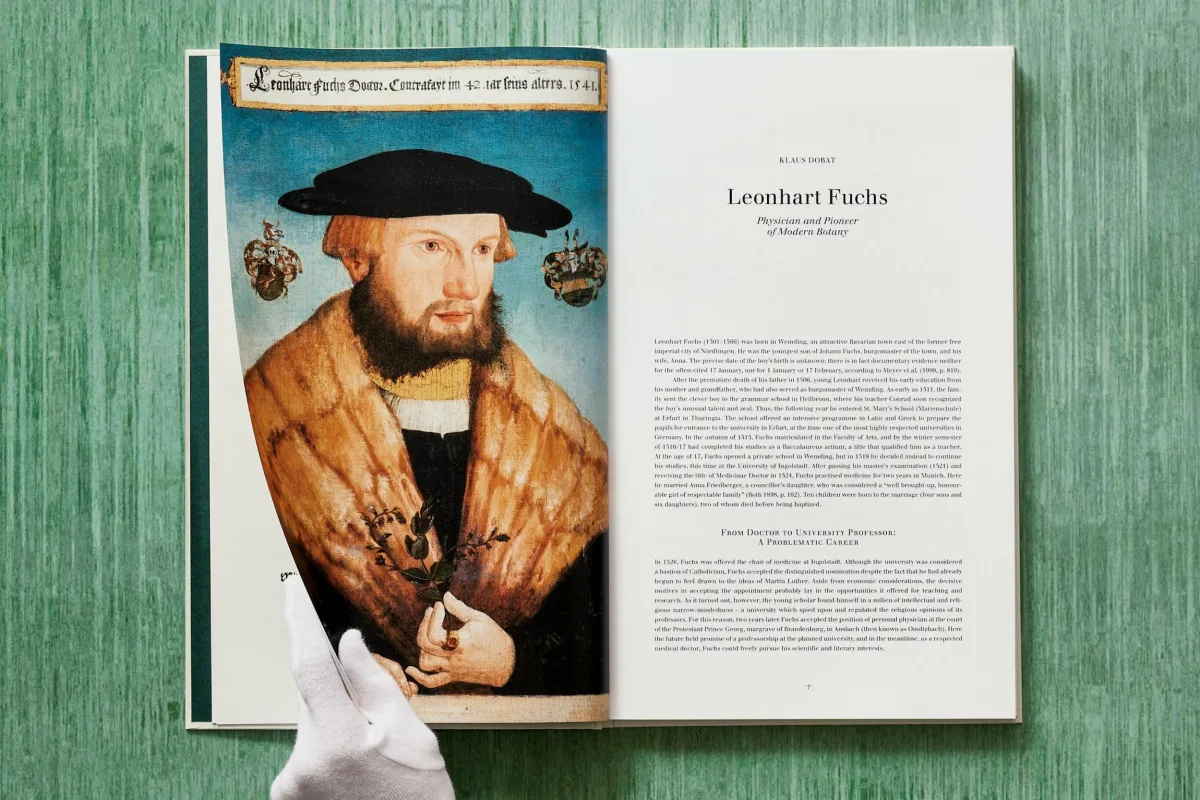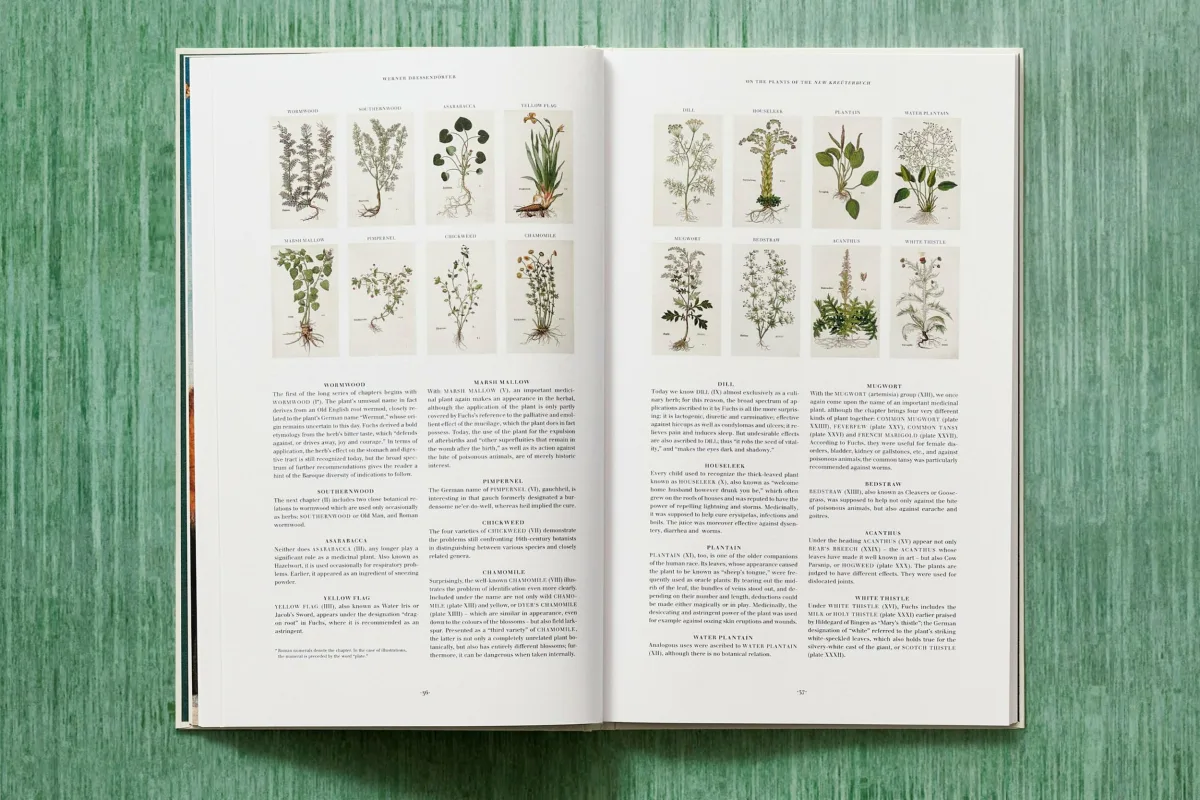1 / 21
XL
XL books are at least 34 cm (13.4 in.) high, with the exception of landscape-format titles
Leonhart Fuchs. The New Herbal
175
With his 1543 herb manual, botanical pioneer Leonhart Fuchs created a masterpiece of Renaissance botany and publishing. This edition is based on Fuchs’s personal, hand-colored original and features over 500 illustrations, including the first visual record of New World plant types such as maize, cactus, and tobacco.
Hardcover with booklet, 9.1 x 14.6 in., 13.80 lb, 892 pages
“An astonishingly in-depth and comprehensive reference work. A veritable bible for botany enthusiasts.”
“These delicately detailed representations of plants by a founding figure of modern botany are given a new lease of life.”
“An enduring intellectual history.”
“…an ode to Fuch’s research and the field of Renaissance botany.”
“One of the greatest books on botany.”
XL
XL books are at least 34 cm (13.4 in.) high, with the exception of landscape-format titles

Leonhart Fuchs. The New Herbal
175Potent Plants
Mother Nature’s medicine cabinet
Leonhart Fuchs (1501–1566,) was a founding father of modern botany, honored to this day in the vivid flower, and corresponding color, Fuchsia. In 1543, Fuchs combined his masterful botanical knowledge with groundbreaking medical research in his New Herbal, a catalog of some 500 types of plants and their healing properties.
While a dependable scientific reference, The New Herbal won fame above all with the detail and quality of its illustrations. Alongside essays describing the plants’ features, origins, and medicinal powers, Fuchs presented each plant with meticulous woodcut illustrations, refining the ability for swift species identification and setting new standards for accuracy and quality in botanical publications. From the age of great exploration, The New Herbal also documented plant types from the recently discovered New World, offering the first visual record of tobacco, maize, kidney bean, and cactus.
This edition is based on Fuchs’s personal, hand-colored copy, which has miraculously survived four-and-a-half centuries in pristine condition. Fascinating for historians of medicine and art, gardeners, and anyone interested in herbal medicine, the volume features over 500 splendid illustrations, and an essay exploring the history of healing herbs.
While a dependable scientific reference, The New Herbal won fame above all with the detail and quality of its illustrations. Alongside essays describing the plants’ features, origins, and medicinal powers, Fuchs presented each plant with meticulous woodcut illustrations, refining the ability for swift species identification and setting new standards for accuracy and quality in botanical publications. From the age of great exploration, The New Herbal also documented plant types from the recently discovered New World, offering the first visual record of tobacco, maize, kidney bean, and cactus.
This edition is based on Fuchs’s personal, hand-colored copy, which has miraculously survived four-and-a-half centuries in pristine condition. Fascinating for historians of medicine and art, gardeners, and anyone interested in herbal medicine, the volume features over 500 splendid illustrations, and an essay exploring the history of healing herbs.
The author
Werner Dressendörfer is a pharmaceutical historian, academic librarian, and former honorary Professor at the University of Erlangen-Nuremberg. His particular spheres of interest are the history of the Early Modern herbal, the cultural history of useful and medicinal plants, and plant symbolism in art. He has written extensively on pharmaceutical and botanical history, and is the author of many of TASCHEN’s botanical publications.
Leonhart Fuchs. The New Herbal
Hardcover with booklet, 23 x 37 cm, 6.26 kg, 892 pagesISBN 978-3-8365-8766-2
Edition: EnglishDownload product images here
4.3
Wow
July 21, 2023
Absolute stunning book , so it’s in East German gothic print not English, doesn’t matter a bit . The book is an absolute beautiful masterpiece.German book
April 4, 2022
This is a stunning book and is beautifully printed. However, beware - this book is German, even if you buy the English version.A beautifully published book
March 22, 2023
A beautifully published book
